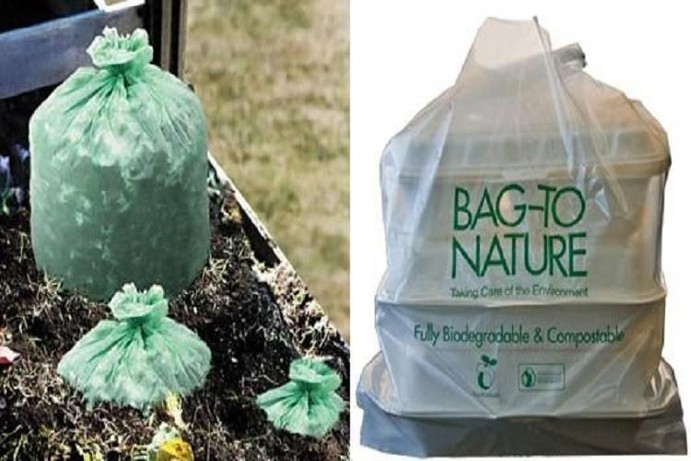Are Biodegradable Plastic Bags the Solution to Environmental Concerns?
In a world where environmental issues are at the forefront of public consciousness, the topic of biodegradable plastic bags has gained significant attention. These bags have emerged as a potential solution to the problems posed by traditional plastic bags, which can take hundreds of years to decompose and often end up polluting our oceans and harming wildlife. But are biodegradable plastic bags really the eco-friendly alternative they are touted to be? Let's delve into the world of biodegradable plastic bags and explore their benefits and challenges.

Understanding Biodegradable Plastic Bags
Biodegradable plastic bags are a type of plastic bag designed to break down naturally over time, unlike traditional plastic bags that can persist in the environment for centuries. These bags are typically made from plant-based materials like cornstarch or potato starch, which can decompose more rapidly. Some biodegradable bags are also produced using synthetic materials designed to degrade faster than conventional plastics.
Environmental Advantages
The key advantage of biodegradable plastic bags is their reduced environmental impact. Unlike regular plastic bags, which can accumulate in landfills and water bodies, biodegradable bags have the potential to break down into natural elements, leaving no lasting residue. This can significantly reduce the harm caused to wildlife and marine ecosystems.
Additionally, the production of biodegradable bags often generates fewer greenhouse gas emissions compared to traditional plastic bags. This lower carbon footprint is due to the use of renewable plant-based materials and more energy-efficient manufacturing processes.
Challenges and Controversies
While biodegradable plastic bags offer several environmental advantages, they are not without their challenges and controversies. One significant issue is the speed and conditions required for biodegradation. These bags may not break down as quickly as one might expect, especially if they end up in a landfill with limited access to air and sunlight.
Another concern is the potential for confusion between biodegradable bags and regular plastic bags. People may inadvertently mix them in recycling or dispose of them improperly, negating the environmental benefits. Proper disposal and recycling infrastructure for biodegradable plastics are essential to ensure they serve their intended purpose.
Compostable vs. Biodegradable
It's important to note that the terms "compostable" and "biodegradable" are not interchangeable. Compostable bags are designed to break down into organic matter and can be used in composting systems, while biodegradable bags break down into natural elements over time. The distinction is crucial, as using compostable bags inappropriately can harm the composting process and environment.
Are Biodegradable Plastic Bags the Ultimate Solution?
Biodegradable plastic bags are a step in the right direction toward reducing the environmental impact of single-use plastics. They offer several benefits, such as decreased plastic pollution and a smaller carbon footprint during production. However, they are not a perfect solution and must be used and disposed of correctly to achieve their environmental goals.
To maximize the effectiveness of biodegradable plastic bags, it's essential to:
Use them as intended: Biodegradable bags are best suited for short-term use and should not be relied upon as a long-term solution.
Dispose of them properly: Ensure that biodegradable bags are disposed of in facilities that can support their decomposition, such as industrial composting sites.
Raise awareness: Educate consumers about the differences between biodegradable and regular plastic bags to prevent confusion.
Support innovation: Encourage the development of new materials and technologies that further improve the biodegradability of plastic products.
In Conclusion
Biodegradable plastic bags have the potential to make a positive impact on the environment, but their effectiveness depends on proper use, disposal, and infrastructure support. They are not a one-size-fits-all solution, and we must continue to explore other sustainable alternatives and make responsible choices as consumers.
So, are biodegradable plastic bags the solution to environmental concerns? The answer lies in our commitment to using them responsibly and advocating for a more sustainable future.


